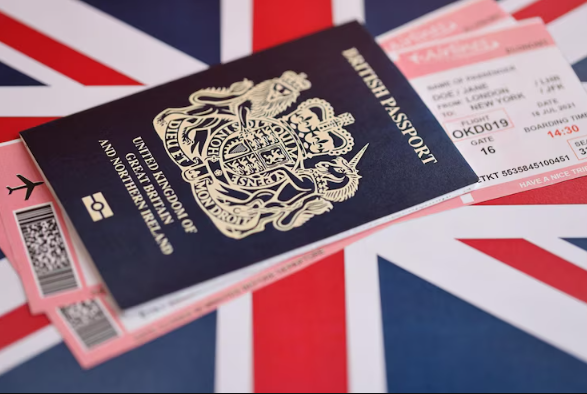In a move that signals a major shift in its immigration policy, the United Kingdom has introduced stricter visa rules for Nigerian nationals, aiming to significantly reduce migration and reinforce border controls. The decision, as explained by the British High Commissioner to Nigeria, Richard Montgomery, is part of a broader policy initiative under the UK government’s new immigration framework.
Speaking at a press briefing in Abuja, Montgomery stated that the UK “values its relationship with Nigeria” but needs to balance openness with the sustainability of its migration system.
“The UK is committed to an immigration system that works in the national interest. We are seeing unprecedented pressure on housing, healthcare, and social services,” said the High Commissioner, as reported by The Punch.
What the New UK Visa Policy Entails
The revised policy imposes stricter documentation requirements, reduced dependents on student visas, and tighter scrutiny for work visas. These measures especially affect Nigerians seeking student and skilled worker routes, which previously saw a significant influx.
According to data from the UK Home Office, Nigerians accounted for over 40% of dependent visas issued to international students in 2023 — a statistic that reportedly influenced the recent crackdown.
Starting in 2024, international students, including Nigerians, will no longer be able to bring family members as dependents, unless enrolled in research-based postgraduate courses. In addition, proof of financial sustainability and return assurance are being more rigorously enforced.
Impact on Nigerians and Local Reactions
The announcement has sparked concern among many Nigerian families and students who view the UK as a prime destination for education and career advancement. Many see the policy as discriminatory and economically driven, especially considering that Nigerians contribute significantly to the UK economy, both as students and skilled workers.
“This policy appears to target Nigerians indirectly. We are hardworking and law-abiding citizens. What we need is more opportunity, not more barriers,” said Dr. Ngozi Nwachukwu, a Nigerian education consultant.
A recent report by the UK’s Department for Education stated that international students contributed over £40 billion to the British economy in 2022, with Nigerian students among the top contributors.
A Global Trend of Restrictive Borders?
The UK’s shift mirrors a growing global trend of tightening immigration in developed countries, as governments grapple with post-COVID economic strain, housing shortages, and populist political pressure. In the United States, similar debates are ongoing about work visas, while Canada has announced plans to cap student intake.
The UK’s Home Secretary, James Cleverly, has stated that the aim is to cut net migration to sustainable levels and protect public services, especially in the face of rising living costs and pressures on infrastructure.
What Nigerians Must Know Going Forward
Prospective travelers and students from Nigeria should carefully study the new UK immigration rules before making applications. Experts advise:
-
Using certified immigration consultants to avoid falling victim to scams.
-
Exploring alternative study and work destinations such as Canada, Germany, or the UAE.
-
Staying informed through official UK government websites and updates from the British High Commission in Nigeria.
Between Mobility and National Policy
While the UK has every right to adjust its immigration policy to suit its domestic needs, the impact on Nigerian families and future talent mobility cannot be ignored. What remains critical is ensuring that these measures are fair, transparent, and not unfairly punitive to one nation or group.
Nigerians must also look inward, building stronger local systems that make staying in the country a viable and rewarding choice — especially for students and young professionals.
Stay tuned to Xamblog.com for updates.
Last Updated on May 15, 2025 by kingstar





